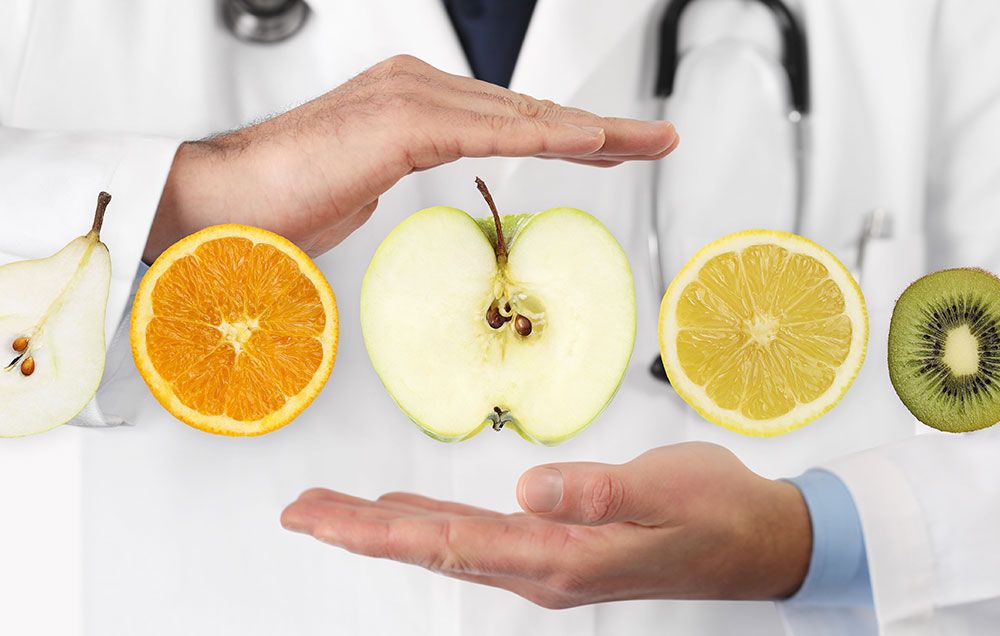All Categories
Featured
Table of Contents
-1
It's something like the difference between your good friend that has a set of clippers and an accredited barber."Anyone can call themselves a nutritionist.
-1"Being a dietitian suggests you have actually completed the needs set by the Academy of Nourishment and Dietetics to offer nutrition counseling and medical nutrition treatment."You'll find dietitians in a range of job setups, including: Hospitals and doctors' offices. Area health and wellness organizations (like fitness centers and entertainment facilities) - best dietitian.

-1
In enhancement to gaining RD and LD qualifications, some signed up dietitians may finish specialized training to be able to better advise individuals with particular nourishment goals or health problems. Some dietitians might gain certifications in specializeds like: Sports dietetics (CSSD). Some certification programs might be open to people who aren't signed up dietitians.
-1"If you desire to be sure you're getting the best evidence-based suggestions from a professional in the area, a dietitian is constantly going to be your ideal bet," Sommer advises. That's not to say some individuals that have not completed the specialized training it needs to be a dietitian do not have anything to offer.
Performance Nutritionist
-1"Your health and wellness is essential, so you do not intend to place it in the hands of just anybody.".
-1The solution is there is a distinction. As an Accredited Practising Dietitian and Accredited Nutritional expert, I think it is extremely crucial to locate a specialist finest fit to your specific needs; and it is critical to make an educated selection. In Australia there is no lawful security over the terms 'dietitian' and 'nutritionist.' This suggests that anyone (with a variety of education and training) can describe themselves as a dietitian or a nutritional expert.
-1In contrast, the term nutritional expert is not as regulated as APD. Nourishment Society of Australia has actually established a Register of Nutritionists yet membership is totally volunteer. This means it depends on the specialist if they wish to end up being a member or otherwise. While numerous nutritional experts undertake college training, it is not to the level of dietitians.
-1Nutritionists are not informed in medical nourishment treatment and can not recommend diets in disease states. This includes both in private or group dietary treatments. Nutritionists are just able to offer guidance for general health problems such as weight monitoring, nourishment across the life cycle, or nourishment in various nutritional choices (such as veganism and vegetarianism).
Geriatric Dietitian ( Melville)
-1It is necessary to explain that, as a result of improved education and learning, all APDs are instantly Approved Nutritional experts and are able to offer all of the solutions a nutritionist can supply. The objective of both nutritionists and dietitians is to help individuals achieve optimum health and wellness and well-being via improving nourishment. The main difference between a dietitian (only those with the APD title) and a nutritional expert is that APDs have gone on to refresher course and are qualified to supply medical nutrition treatment to people and to groups.
-1APDs performance is also consistently kept track of and they are called for to complete continual education. APDs are bound by a Code of Ethics, and those that do not conform (as well as those that do not finish the needed constant specialist development) shed their APD title. APDs are likewise signed up with Medicare, DVA and many health funds; whereas, nutritional experts are not.

-1
Both are medical care experts, the titles 'Dietitian' and 'Nutritional expert' are usually incorrectly interchanged - plant-based nutritionist. The title of a Registered Dietitian (RD) is secured by legislation, and professionals have to be registered with the Health & Care Professions Council (HCPC).
Dietitian For Children
-1The title of Registered Nutritional expert is given to registrants with the UK Voluntary Register of Nutritionists (UKVRN). By finishing a sophisticated level such as a master's in nutrition and/or doctorate programme, Registered Nutritionists can continue to become researchers and teachers in the area of nourishment.

-1
Externally, "dietitian" and "nutritional expert" are basic synonyms. They both aid people develop wholesome, sustainable eating routines and become total healthier individuals. However the primary distinction in between dietitians and nutritionists hinges on the lawful limitations that each title carries. Dietitians, additionally described as registered dietitians (RD) or registered dietitian nutritionists (RDN), can deal with professional medical problems. sports nutritionist.
-1Commonly, insurance providers will certainly cover prices linked with a dietitian's services. While they typically function in colleges, health clubs, health and wellness food shops, and various other less medically-oriented settings, they can additionally work in many of the same areas as their RD coworkers.
-1Some states need nutritionists to hold a job-related license, but others don't regulate the function in any way. For people and clients, though, this suggests that their insurance policy providers do not commonly cover services from a nutritionist. If you're discovering which course is ideal for you, right here's what you need to learn about the differences in becoming a nutritional expert versus a dietitian.
Latest Posts
Challenging Gym For Women Near Me – Wilson
Proven Personal Training Near Me – Westminster WA
Cost-Effective Fitness Coaching Near Me – Baldivis